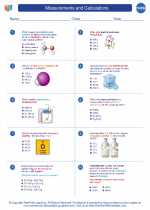Prolactin
Prolactin is a hormone produced by the pituitary gland in the brain. It plays a key role in a variety of physiological functions, particularly in relation to the female reproductive system and lactation.
Functions of Prolactin
Prolactin has several important functions in the body:
- Stimulating milk production in the mammary glands during pregnancy and after childbirth
- Regulating the menstrual cycle and ovulation in women
- Supporting the immune system
- Contributing to the regulation of metabolism and water balance
Regulation of Prolactin Levels
Prolactin levels are primarily regulated by the hypothalamus, which produces a hormone called dopamine that inhibits prolactin secretion. When dopamine levels decrease, such as during pregnancy or breastfeeding, prolactin levels rise, stimulating milk production.
Disorders and Imbalances
Abnormal levels of prolactin can lead to various disorders, such as:
- Hyperprolactinemia: Excessive prolactin production, which can cause infertility, irregular menstrual periods, and milk discharge from the breasts unrelated to pregnancy or breastfeeding
- Hypoprolactinemia: Insufficient prolactin production, which can lead to difficulty breastfeeding and decreased milk production
Study Guide
When studying prolactin, it's important to focus on the following key points:
- The role of prolactin in lactation and milk production
- The regulation of prolactin secretion by the hypothalamus and dopamine
- The impact of prolactin imbalances on reproductive health and breastfeeding
Additionally, understanding the feedback loop involved in prolactin regulation and its interaction with other hormones such as estrogen and progesterone is crucial for a comprehensive understanding of this topic.
.◂Chemistry Worksheets and Study Guides High School. Measurements and Calculations

 Worksheet/Answer key
Worksheet/Answer key
 Worksheet/Answer key
Worksheet/Answer key
